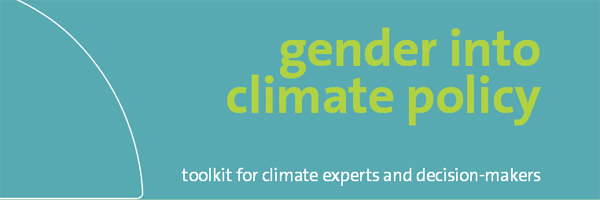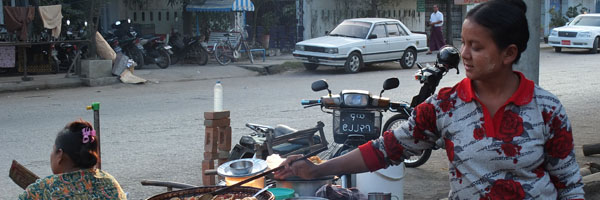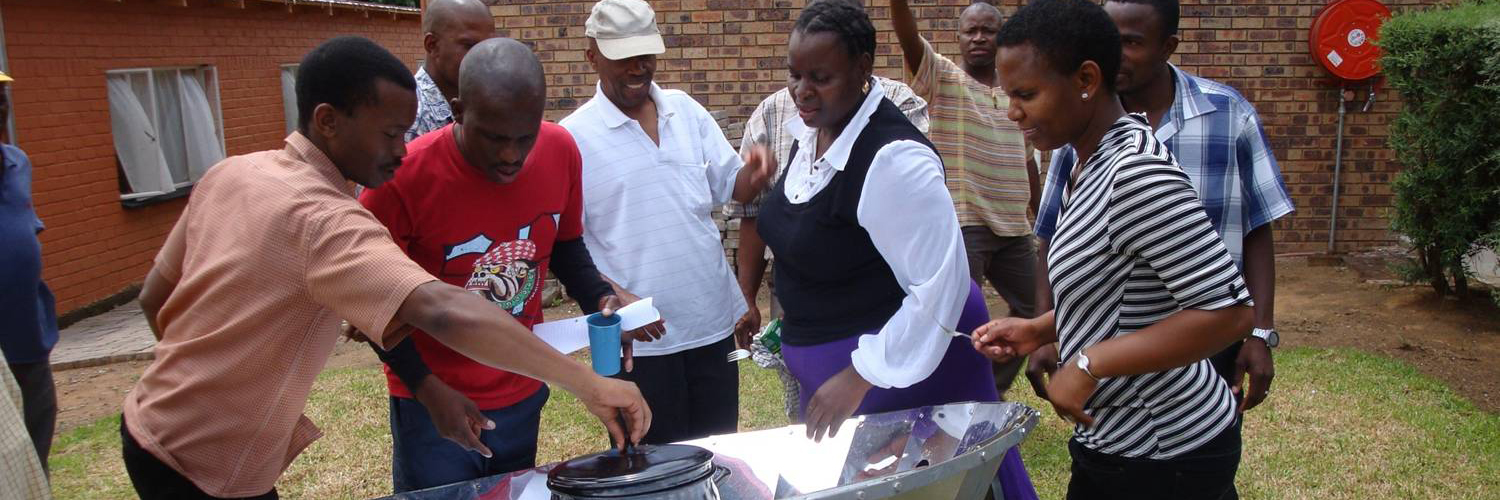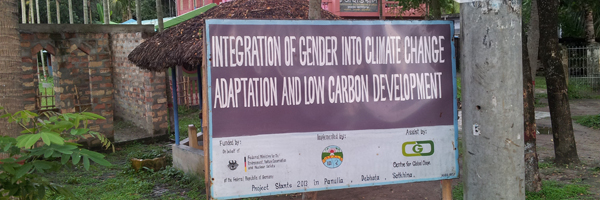Past activities
GenderCC’s members are actively engaging in different activities to integrate the women’s perspectives and gender aspects into climate policies at the national and regional level.
Gender into Urban Climate Change Initiative
Project duration: 2015 - 2022
Just as the linkages between climate change and gender are receiving a growing amount of attention, the specific challenges that cities face in light of climate change are also increasingly recognised. Yet, climate change, gender and cities are rarely addressed together, despite the clear potential for tackling inequality and climate issues with well-designed urban policies.
GenderCC's project "Gender Into Urban Climate Change Initiative" addressed this interface in a number of pilot cities in Indonesia, India, Mexico and South Africa. The project started in 2015 and ended 2022.
GenderNETCLIM (Germany)

Project duration: 2015 - 2016
As climate change is anthropogenic, ie. caused by humans, climate-related changes, individual behaviour and social conditions interact in a range of ways. People’s socio-economic status, background, age and also gender are all factors that influence their consumption and mobility patterns, as well as their access to jobs and their political influence. Climate change therefore has different impacts on different groups of men and women, as well as on gender relations.
This project aimed to contribute to the development of strategies for climate mitigation and adaptation, while at the same time integrating promoting gender equality and equal opportunities.
Read more.
Raising awareness, building capacity and influencing policy (South Africa)
Project duration: 2010 - 2011
The overall goal of this pilot project was to contribute to integrating gender in climate change related policy making and adaptation strategies in South Africa. Initiated in 2010, the project focuses on working with women's groups in rural communities of the North-West, Limpopo, Western Cape and some peri-urban parts of Gauteng province.
Within the framework of the project three activities were conducted:
- policy recommendations in South Africa and the UNFCCC
- capacity building workshops
- a Grassroots Women's Conference on Climate Change
Dorah Lebelo, steering group member and coordinator of GenderCC's project in South Africa, joined forces with other experts and organisations to found GenderCC Southern Africa (SA), and introduced it as one of Southern Africa’s leading associations on Gender and Climate Change.
The project was supported by the German Ministry for Economic Cooperation and Development (BMZ).
Gender and low carbon development (Bangladesh and the Pacific)
Project duration: 2010 - 2014
This joint project aimed at promoting gender sensitive approaches in adaptation and low carbon development projects and policies in two highly vulnerable regions – Bangladesh and the Pacific Islands.
Locally GenderCC was working with the Center for Global Change in Bangladesh (CGC), and the Secretariat of the Pacific Community (SPC) in Fiji Island. These partners promoted awareness raising and capacity building with a broad variety of stakeholders.
The project was carried out in 2010-2014 as part of the International Climate Initiative, supported by the German Federal Ministry for Environment, Nature Protection and Nuclear Safety.
Toolkit for climate experts and decision-makers

Women’s organisations and gender activists have been lobbying consistently for the recognition of gender issues and the inclusion of women in decision-making in the UNFCCC process for more than a decade, developing sharing positions on mitigation, adaptation, financing, REDD, technology transfer, and further topics. Thoughan increasing number of people now recognise that sustainable and effective climate policy needs to integrate a gender perspective, knowledge on the implementation of gender-responsive policy is still lacking.
Therefore GenderCC has developed a toolkit for climate experts and decision-makers covering the major issues of the climate change negotiations. It provides knowledge and introduces methods to be used for mainstreaming gender into climate policy. The intention is to inspire a deeper appreciation of the vital significance of gender as an essential consideration in dealing with the social dimensions of climate policy. The toolkit explains gender and equity concepts and gives an overview of options and ideas which you can adapt to your needs.
The toolkit can be downloaded here.



